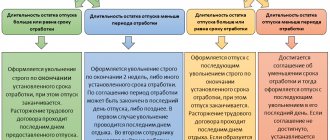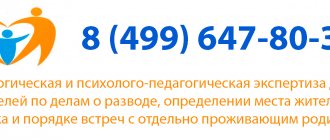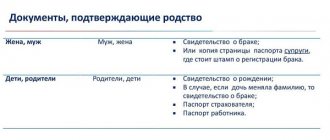Geography of the celebration, or where it did not take root?
November 20 is celebrated annually as World Children's Day, a tradition that has existed for many years in 129 UN member countries. For example, in Russia it is quite popular in some regions, although everyone’s favorite International Children’s Day (celebrated on June 1) has taken root here better. It is known that World Children's Day on November 20 is dedicated to the Convention on the Rights of the Child adopted on the same day, but only in 1989. It came into force in 1990, and in Russia - in 1994.
Present
A gift is an emotion. A joint trip to a playroom, amusement park, zoo, cafe or circus will be an excellent present for a child. This will allow you to have a great holiday, accumulate new emotions and memories.
Creator's Kit. Sets for drawing, modeling, weaving, and construction kits for assembling models of airplanes or cars will serve as an excellent gift that will allow a child to develop logic, thinking and imagination.
Box of sweets. A box filled with your child's favorite candies, chocolate bars, lollipops and other sweet treats will delight your child and make this holiday memorable.
Unusual facts about children around the world
World Children's Day (November 20) was created specifically to make us think once again about the smallest and most valuable creatures in our lives. After all, children are very vulnerable. The world of little ones is a kind of fairy tale, on which their entire future life will depend. Therefore, it should be filled with colors and magic every day. In general, speaking about children, it is important to know some interesting world facts about them, for example:
- V.A. Mozart - many do not recognize his innate genius, constantly reminding us that his father carefully studied with him at an early age. But classes are absolutely pointless if the child does not have perfect hearing and a sense of rhythm. Mozart composed entire works by the age of 5, and his first symphony by the age of 10.
- The intelligence of 2-year-old Oscar Wrigley had no equal. At such a young age, he had an IQ of 160. At one time, A. Einstein was endowed with such a gift of knowledge and logical thinking. The kid was even a member of the club of the smartest people on the planet.
- Australia currently has the highest number of successfully born children conceived through artificial insemination.
- By the way, the moment a baby is born in some countries is not considered his date of birth. For example, in Korea, the nine months that he lived in the womb are necessarily added to the child’s age. In India, the day of conception is the starting point of a baby’s life.
- The age of women who were able to give birth to a healthy baby can also be surprising. Thus, one Italian woman became a mother for the first time at the age of 63.
- The number of children born to one woman can be very large. One Russian peasant woman was able to give birth to 69 children in her 40 years. This story deserves a closer look...
Toasts
“Congratulations on World Children's Day. I wish you sweets and joys, fun and wonderful friends, wonderful adventures and good luck, a happy childhood and funny ideas. Never be sad, believe in your dreams, make your parents happy and surprise the whole world!
“When a baby appears in a family, it is always a joy. They give us the most tender and vivid emotions. However, the birth of a new person imposes great responsibility on parents. Don't forget that by giving life, you only offered a path to your child. Whether this path will be honest and worthy depends only on you. On World Children's Day, I would like to wish every parent to be wiser, more restrained and kinder. What kind of foundation is laid in the soul of a little man will determine what kind of person he will become in the future.”
“On World Children's Day, I would like to wish every child living on the planet warmth and happiness. Let the little person be surrounded only by loving and devoted people. If peace and respect reign in the heart of every child, perhaps there will be less injustice and cruelty throughout the world in the future. Happy holiday!
Family of Fyodor Vasiliev
According to entries in the famous Guinness Book of Records, the most fruitful mother in the world was a Russian woman, the wife of Fyodor Vasiliev, a peasant who lived in Russia in the 18th century. He lived in the city of Shuya (currently Ivanovo region) from 1707 to 1782. His first wife, whose name, unfortunately, has not been preserved in history, gave birth to 69 children. Among them were sixteen twins, seven triplets and even four quadruplets. All this happened in the years 1725-1765. In total, this superhero mother went through no less than 27 births. 67 of her children survived. Russian women in those days were probably distinguished not only by their good health. but also excellent patience. Living conditions in Shuya in the 18th century were relatively prosperous: weaving production was rapidly established in the surrounding area, which allowed the merchants to have income and the peasants not to suffer.
After the death of his first wife in 1765, Fyodor married again and in his subsequent second marriage six more twins and two triplets were born. That is, Vasiliev’s second, also nameless, wife bore him 18 more sons and daughters. In total, this Shui peasant became the father of 87 children. Most likely, the gene for having many children was passed down precisely through his line, since when he changed his wife, the heredity for twins and triplets was so happily preserved in the family. Of the children from Fyodor Vasiliev’s two marriages, 82 children survived in infancy. This is truly an incredible and outstanding world record.
The story of this amazing fact was first published in the London magazine in 1783. Fyodor Vasiliev, who came to visit his relatives living in England, became an amazing sensation for British journalists. We must assume that this peasant was not a poor man if he had enough money for such a very expensive journey from St. Petersburg to the British Isles, or he received very solid sponsorship. During this extraordinary journey, as mentioned in the annals of history, Fyodor Vasiliev was introduced to the Empress, who, for all her frugality, always knew how to be generous. Information about the voyage of a father with many children to the capital and to the British Isles is reflected almost verbatim in A.P. Bashutsky’s book “Panorama of St. Petersburg,” published in 1834.
Statistic scientists assumed that if each of these 67 surviving children of Fyodor Vasilyev and his first wife had at least 2 children of their own, and this is a very low birth rate for those times when there were 4 to 7 children in families, then Allowing for a range of approximately 25 years between generations, the result is an impressive figure: 70 thousand. It is precisely this huge number of descendants of the Fedorov spouses that can exist now, in our time. This is quite possible if their amazing life force, of course, was not heavily affected by subsequent tragedies, wars and other misfortunes that befell the country and the whole world over three whole centuries.
History of this event
Who and when was invented World Children's Day - a holiday on November 20? What are its goals? The main task was one - to protect and provide the best life for every child, regardless of his location on our vast planet. That is why, in 1954, all countries that were members of the UN received an order from the General Assembly, which was as follows: by 1956, it was necessary to prepare a project to introduce a holiday dedicated to Children's Day.
There were four main directions that world powers had to follow based on this plan: the survival of the child in this world:
- This refers to physical health and its moral state; child development:
- their access to preschool institutions, schools, sports facilities, etc.;
- protection from the negative influence of the external environment;
- participation in the life of the society to which children belong.
At the international level, on November 20 (World Children's Day) it is customary to celebrate a holiday called Universal Children's Day. But each country is allowed to choose its own national option. By the way, the date of such a significant event was not immediately determined. But after some time the issue was raised at a UN meeting. This was done after signing some important documents:
- 1959 – Declaration of the Rights of the Child;
- 1989 – Convention on the Rights of the Child.
Competitions
In the footsteps of a tiger To conduct the competition, you need to draw an exact paw print of a predator on a piece of paper and cut it out. Several pairs of such blanks will be required, the number of which will correspond to the number of participants. The leader indicates the start and finish. Participants receive a pair of tracks and stand at the start. Their task is to reach the finish line, moving the tracks with their hands in turn, moving their body weight on one leg. The participant who reaches the finish line the fastest wins.
Chain Each participant in the competition is given a box of paper clips. At the leader’s command, participants begin connecting paper clips into a chain. The presenter times one minute. After the time is up, the competitors compare their chains. The one whose length is longer becomes the winner.
Artists' competition To conduct the competition, you need to prepare two easels and felt-tip pens. Two teams with the same number of participants are selected. The presenter gives each team one simple drawing: a bicycle, a ship, a steam locomotive, a dog, etc. On command, participants begin to draw. Each person draws one detail, and then passes the felt-tip pen to another participant. The team that completes the task faster becomes the winner.
Holiday traditions
The event is marked by numerous actions aimed at protecting the rights of minors. In the West, demonstrations and flash mobs (collective actions according to a predetermined scenario) take place. The question of the appropriateness of abortion is raised. The discussions discuss the moral side of such operations. Supporters of the ban on abortion march through the streets with slogans and posters. They put forward demands at the legislative level to ban the medical procedure.
Charitable foundations collect money, things, textbooks for orphanages and low-income families. Public organizations organize educational sessions in various institutions, including schools. Listeners are told about the basic rights of minors. Mechanisms for counteracting and preventing violations of the law are described.
In Russia, International Children's Day, established on June 1, is more widely celebrated. However, by a joint decision of the Ministry of Justice of the Russian Federation and the Ministry of Education and Science of the Russian Federation, November 20 was recognized as the All-Russian Day of Legal Assistance for Children.
Traditionally, on this day, employees of the State Legal Bureau of the Tambov Region organize a set of events for legal education and provision of free legal assistance to children. This year, this event was held in educational and social institutions of the region in an online format due to the unfavorable epidemiological situation.










